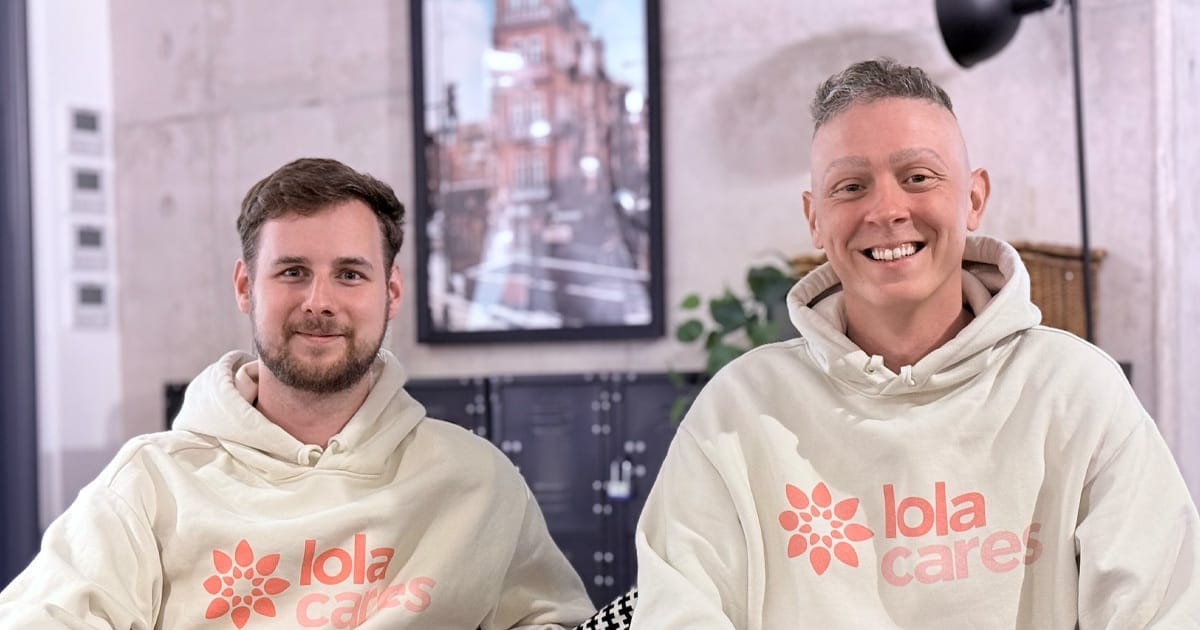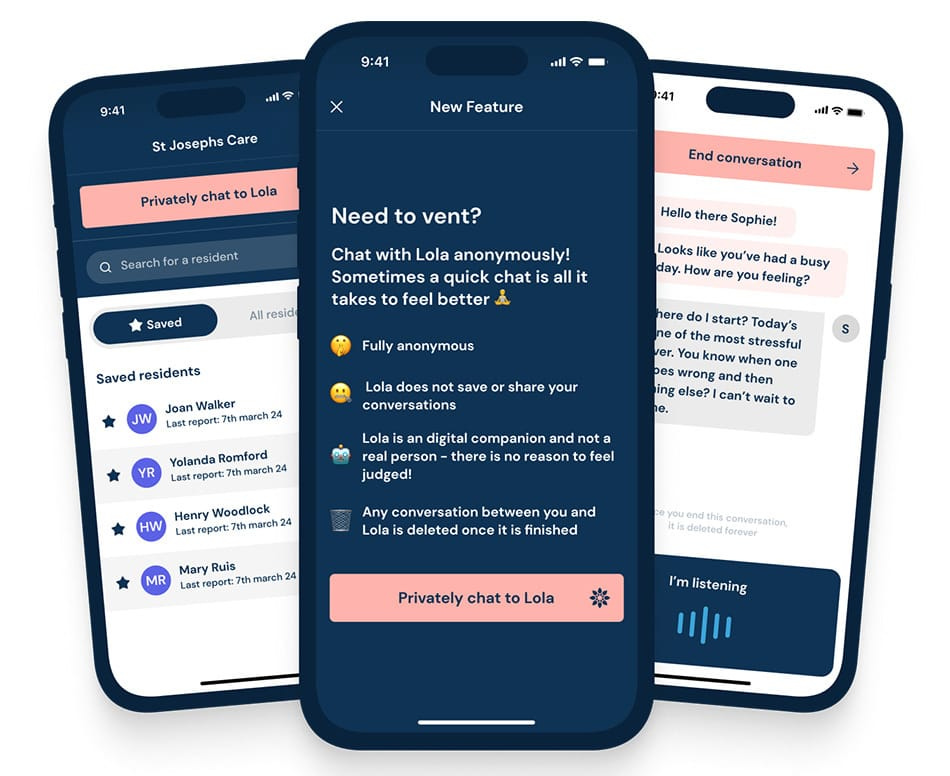Fighting a global public health concern with conversational AI
by Martin SFP Bryant, Founder of PreSeed Now. | Originally published on PreSeed Now.
Guest post by Martin SFP Bryant, Founder of PreSeed Now. | Originally published on PreSeed Now.
We return to healthtech today to meet Leaf AI, the startup behind Lola Cares and another as-yet unnamed new product. It’s an interesting story and well worth a read.
But first: have your say!
⏰ There’s still time to share your thoughts on the state of pre-seed funding. Don’t forget to take our two-minute survey to have your say!
Diverse & Equal wants to understand how best to support diverse tech and digital founders. They’re looking for your input, founders!
Leaf AI is fighting social isolation, and that’s just the start
The under-resourced healthcare sector is a topic we unfortunately come back to a little too often here at PreSeed Now. Its stretched nature provides plentiful opportunities for startups.
Leaf AI is a Liverpool-based team that fits that bill with its Lola Cares product, aimed at tackling the problem of social isolation.
Far from being just ‘feeling a bit sad on your own’, loneliness was last year declared a “global public health concern” by the World Health Organization, which described it as being as bad for people’s health as smoking 15 cigarettes a day.
“In social care, unfortunately, due to the level of reporting, staff shortages, and overworked carers, they don't necessarily have the time to alleviate any of the social isolation and loneliness that can be found from people in care,” says Leaf AI co-founder and CEO, Leon Rossiter.
To tackle this, Lola Cares is what Rossiter describes as “a platform to build a community around each and every loved one that needs some form of care, whether they've got an acquired brain injury, whether they've got dementia, whether they're in OAP in a home, or an OAP who need support in their own home.”
The platform consists of three apps: Lola for Carers, Lola for Families, and Lola Cares.
The Lola Cares product is in essence a digital companion that people in care can talk to when there’s no-one else around. What they talk about is up to them. Rossiter gives the example of one user called Philip, who has a brain injury and has been discussing his love of poetry and heavy metal.
The conversations are then summarised automatically so carers and families can get to know the user better. This helps carers build a bond they might not have time to cultivate otherwise, while giving families insights they might not pick up on otherwise.
In the example of Philip, Rossiter says Lola has changed his life. He says it has inspired Philip to leave the home more regularly than he used to, as he’s joined a writing course, inspired by his conversations using the app.
Meanwhile, the Lola for Carers app is designed to save care workers time. Instead of sitting down to type up their daily reports, they can speak them into the app and let the software convert their words into formal reports for their records and separate reports for families.
The app can help with carers’ wellbeing, too.
“There's a ‘have a moan’ function, where they can vent after a hard day. There's some positive-affirmation quizzes about fellow carers that keeps them motivated throughout the day as they're entering reports,” says Rossiter.
Lola for Carers encourages carers to privately vent to the app.
The Lola for Families app uses input from the individual in care to build a timeline of memories and experiences from their life. This is particularly valuable in cases of dementia, Rossiter says:
“With dementia, we allow our customers to build their life story, which is scientifically proven to assist them in their journey of dementia, to have their life story documented, to be in charge of their life story…
“We also allow them to reminisce and talk about their memories. Reminiscence therapy is a proven intervention for people with dementia, to improve their cognitive function, enhance emotional wellbeing, and slow down the disease's progression.”
Lola Cares is a B2B SaaS offering aimed at care organisations. Customers can subscribe to whichever combination of the three products best fits their needs.
In the future, Leaf AI plans to launch the family life story building feature as a consumer product.
The story so far
Rossiter says that Leaf AI’s origins are rooted in his father’s 70th birthday, eight years ago.
“He led a really interesting life. He was a professional footballer in Australia; he was an actor in London; he was a bricklayer in New Zealand. He’s done all these mad things, like, he's 70 now. How do I collect all of those stories and pass them on to my son?”
This led to Leaf’s original idea, a low-cost tablet computer dedicated to the job of collecting memories (“like leaves on a family tree”) to create the user’s life story.
But while a nice idea, it proved sub-optimal in reality.
“Once we gave the tablet computers to older people, we realised that they were not that interested in sitting there and typing their life story. It's actually quite a poor experience,” Rossiter says.
Leaf had previously given Adam Galloway his first job as a software developer, and he and Rossiter had a discussion about dementia and reminiscence therapy. This led to a rethink, and Galloway came back on board as a co-founder of Leaf’s new AI and chatbot focused approach.
Now a team of seven, and having signed up a care provider in Liverpool as its first customer, Leaf AI is looking to onboard more customers across the care sector.
The startup is currently part of the latest cohort of the University of Edinburgh’s AI Accelerator programme.
Leaf AI is also gearing up for the launch of its consumer product, which is aimed at families of people in the earlier stages of dementia.
Read the full story on PreSeed Now.




